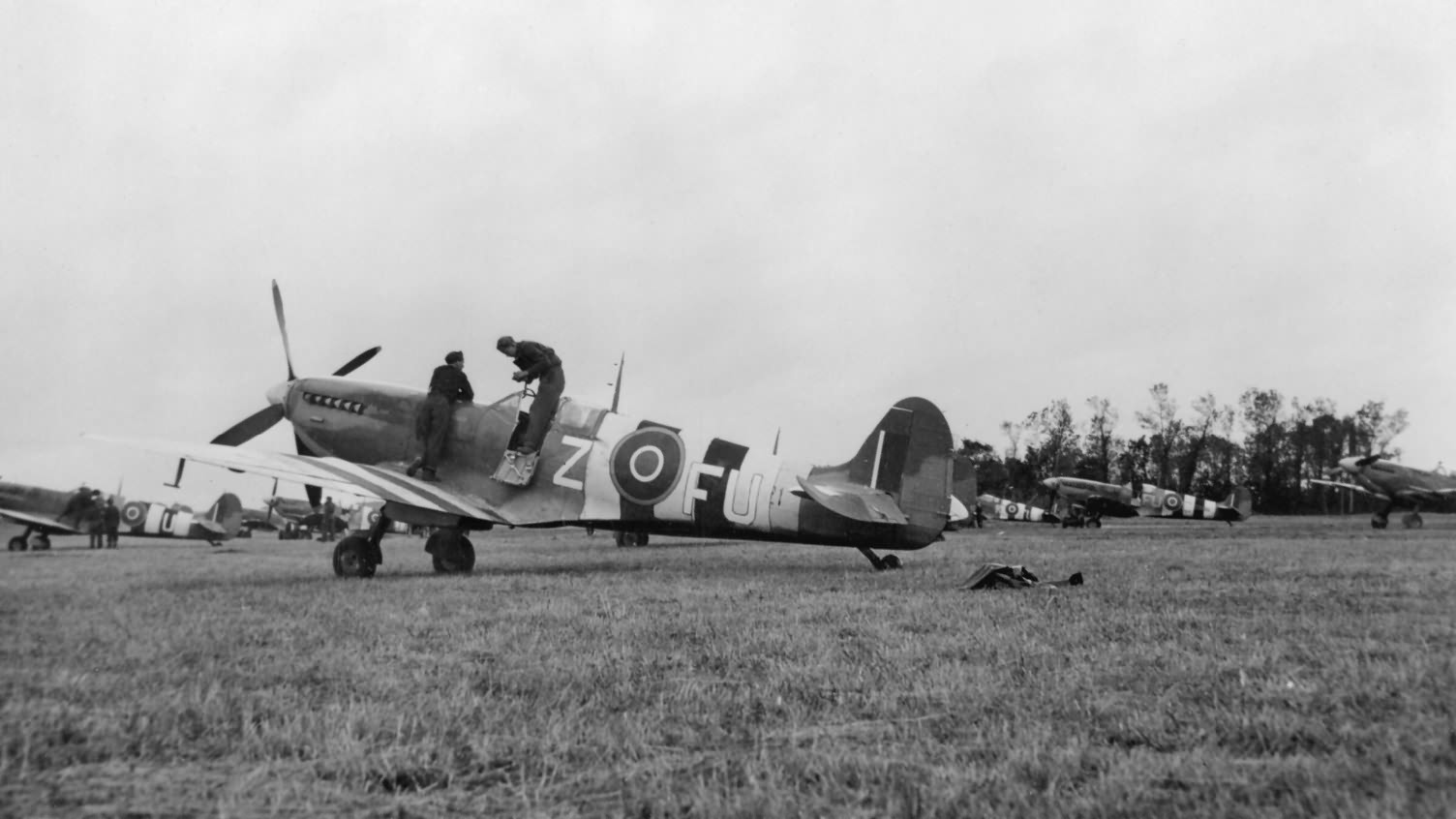The Supermarine Spitfire Mk IXb was a variant of the Mk IX, one of the most significant and versatile models used during World War II. The Mk IXb was designed as a single-seat fighter, specifically to counter the German Focke-Wulf Fw 190, and was a result of emergency upgrades to enhance performance.
Specifications:
- Type No.: 361
- First Flight: 29th August 1942 (N3927)
- Type: Single-seat fighter
Dimensions:
- Wingspan: 36 ft 10 in (11.23 m)
- Length:
- Standard: 30 ft 6 in (9.3 m)
- With broad chord rudder: 31 ft ½ in (9.46 m)
- Height: 11 ft 8 in (3.56 m) [tip of prop, tail up]
Performance:
- Engine:
- Two-speed, two-stage Merlin engines:
- Merlin 61 (1,560 hp)
- Merlin 63 or Merlin 63A (1,690 hp)
- Two-speed, two-stage Merlin engines:
- Maximum Speed: 408 mph (657 km/h) at 25,000 ft (7,608 m)
- Service Ceiling: 44,000 ft (13,410 m)
- Range: 434 miles (698 km)
Fuel Capacity:
- Fuselage tanks:
- Upper: 48 Imp Gal (218 L)
- Lower: 37 Imp Gal (168 L)
- Auxiliary tanks:
- 30 (136 L), 45 (204 L), or 90 (409 L) Imp Gal auxiliary tanks could be fitted.
- 170 Imp Gal (773 L) long-range ferry tank could be carried, with an optional 29 Imp Gal (136 L) fuselage tank.
- Total maximum fuel capacity with these configurations was 284 Imp Gal (1,291 L). In this configuration, all armament was removed for ferry flights.
Armament:
- Standard armament options:
- Two 20 mm Hispano cannon (120 rounds per gun) and four 0.303 in (7.7 mm) Browning machine guns (350 rounds per gun), or
- Four 20 mm Hispano cannon (120 rounds per gun) for greater firepower.
- Bomb load:
- Capable of carrying 1,000 lb (454 kg) of bombs, with a 500 lb (227 kg) bomb on the centerline and one 250 lb (113 kg) bomb under each wing.
Features:
- Cockpit: Unpressurized, fitted with internal bulletproof glass for pilot protection.
- Tailwheel: Fixed.
- Wing Type: Fighter (F) wing configuration.
- Propeller: Rotol four-blade, variable-pitch, constant-speed propellers with options:
- Type R3/4F5/2 (Dural)
- Type R3/4F5/3 (Dural)
- Type R5/4F5/4 (Jablo or Hydrulignum)
- Type R12/4F5/4 (Jablo or Hydrulignum), all with a 10 ft 9 in (3.28 m) diameter.
Note:
- No camera gun was installed in this variant.
Production:
- Total Mk IX Production: 1,255 units.
The Mk IXb proved to be one of the most effective variants of the Spitfire, playing a crucial role in air superiority battles. It was praised for its balance of speed, firepower, and maneuverability, making it an excellent aircraft for both dogfighting and ground-attack missions.
